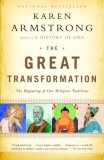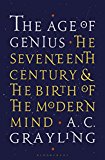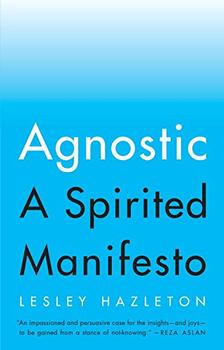Summary | Excerpt | Reading Guide | Reviews | Beyond the book | Read-Alikes | Genres & Themes | Author Bio

The Beginning of Our Religious Traditions
by Karen Armstrong.
![]() This review was originally published in The BookBrowse Review in May 2006, and has been updated for the
April 2007 edition.
Click here to go to this issue.
This review was originally published in The BookBrowse Review in May 2006, and has been updated for the
April 2007 edition.
Click here to go to this issue.

If you liked The Great Transformation, try these:

by A.C. Grayling
Published 2017
Out of a 'fractured and fractious time,' the author asserts persuasively, the medieval mind evolved into the modern. Another thought-provoking winner from Grayling." - Kirkus

by Lesley Hazleton
Published 2017
A widely admired writer on religion celebrates agnosticism as the most vibrant, engaging - and ultimately the most honest - stance toward the mysteries of existence.






Your guide toexceptional books
BookBrowse seeks out and recommends the best in contemporary fiction and nonfiction—books that not only engage and entertain but also deepen our understanding of ourselves and the world around us.